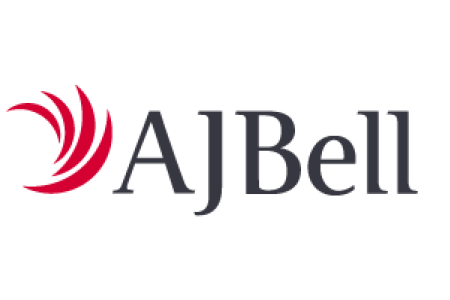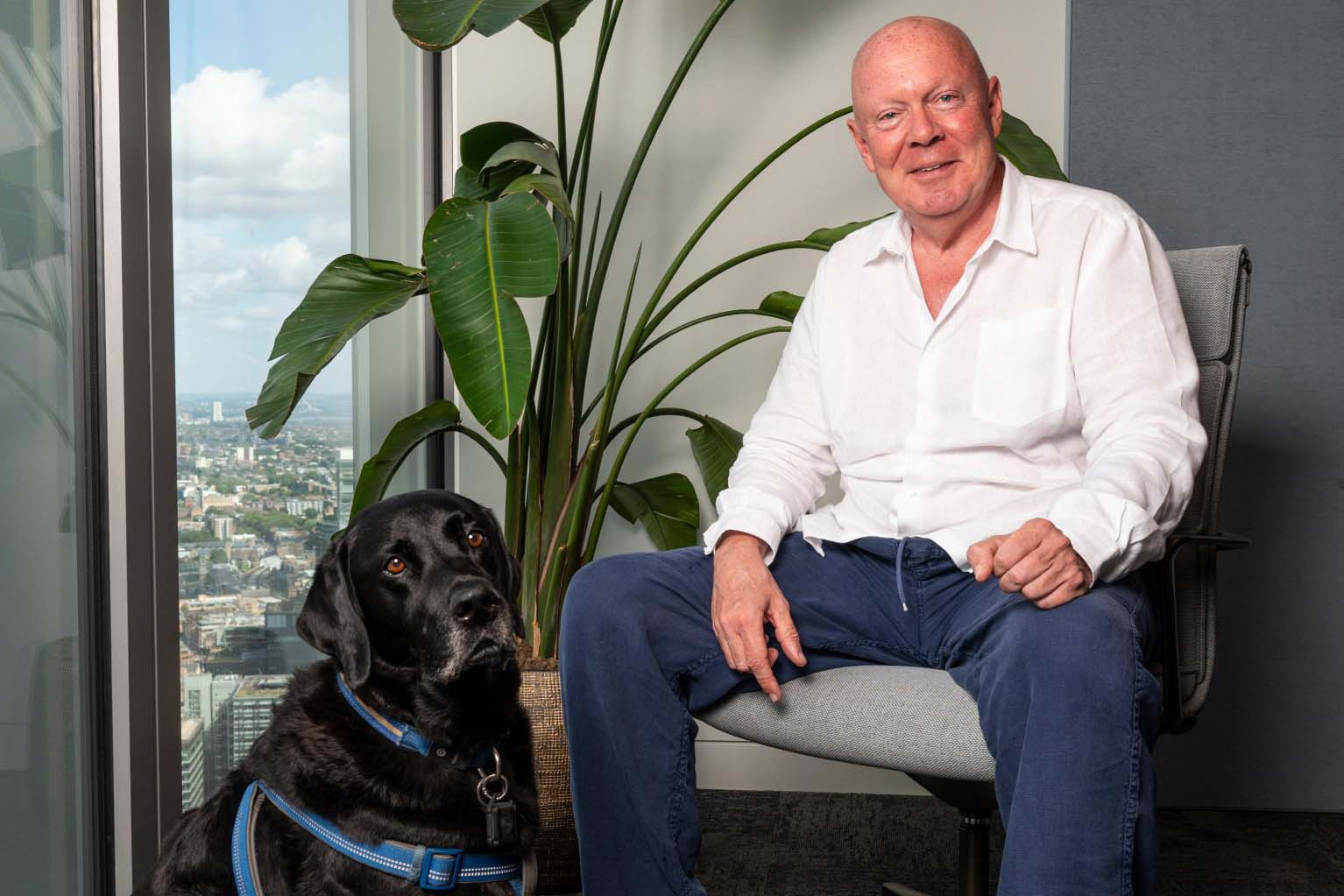Important information
Tax treatment depends on your individual circumstances and may be subject to future change.
Whatever your plan for the money, it’s important to ensure your savings are earning the best rate possible. Below we list the top-paying easy access, fixed, and notice rates on the market this October.
Three in four savers keep their money with their current account provider, according to research from the Financial Conduct Authority (FCA) last year. Given that most people bank with a “high-street” bank or building society, it means there are many consumers who could be earning more from their money.
HSBC’s Flexible Saver, for example, pays a rate of 2% that means a balance of £15,000 would earn £300 for the year if the interest rate never changed. By contrast, the same deposit could earn £450 more each year if it sat with the top-paying provider instead.
If you’re looking for a better paying account, below we’ve listed some of the top rates on the market. We also explore:
Read more: Best fixed rate bonds
Top savings accounts
Before you begin comparing rates, it’s a good idea to understand your savings goals so you can move to the right account.
Fixed rate savings accounts typically offer better rates than its variable counterparts, but access to your cash is less accessible. This makes it a great option for longer-term savings goals and right now the top fixed rate sits at 5.3%.
The best easy access account, meanwhile, also offers 5% and comes with the advantage that you can withdraw your money or add more to your savings instantly. It makes a great home if you’re building an emergency fund.
Easy access rates are also variable, meaning it can change at your provider’s discretion. Notice accounts offer variable rates too, which are often better paying than easy access accounts with the top rate currently offering 5.5%. However, you won’t be able to access your money instantly and you’ll need to hand in a notice period.
Read more: What is a savings platform and should I use one?
Saving for the long-term? Open a stocks and shares Isa with AJ Bell

If you’re saving for a long-term goal, then why not consider keeping your money in a tax-efficient home? A stocks and shares Isa can provide this environment, and the potential to out-earn even the best of savings accounts.
If you do wish to consider this option, then AJ Bell’s award-winning stocks and shares Isa could be the ideal platform.
Best easy-access accounts
Chip now offers the best paying easy access account in the UK at 5%. However, it’s worth noting that you are limited to three penalty free withdrawals per year. Exceed this and your rate will drop to 3.9% for the remainder of the yearly period.
Based on the minimum deposit of £5,000 you’ll earn £250 a year in interest if the rate never changes. That’s about £100 more than the average easy access account.
Free Times article: The insurance boss who started over — twice

Richard Brindle has risen to the top of his field (and amassed a fortune on the way) by being braver than all around him. Read more about his story
What is an easy-access savings account?
Easy-access savings accounts let you withdraw your money without notice. But this convenience usually comes at a price, with fixed rate bonds typically offering better rates.
While sometimes used interchangeably, there is a difference between instant access and easy access savings accounts. Our guide explains.
Best fixed savings bonds
Currently the top paying fixed rate is 5%, but it’s only available across a one year term. For a longer period, there’s a three year fixed rate at 4.55% – this deal can be viewed here.
Read more: Best fixed rate savings
What is a fixed savings bond?
A fixed rate bond offers a guaranteed rate over a set period. This means you’ll have the advantage of knowing how much interest your money will earn over the term and how it compares to the rate of inflation.
This set-up is just one of the reasons fixed savings accounts offer different rates to its easy access counterparts.
Chris Irwin, director of savings at Yorkshire Building Society told Times Money Mentor that one of the first factors it considers when pricing its fixed products is the wider market. “To do this we review interest swap rates and market conditions. Swap rates take into account expected base rates over the term of the product,” he explained.
It also means that the length of the fixed rate bond plays a significant role when determining its rate of interest. Currently, one year fixed rates the best returns, but it wasn’t long ago when long-term fixed accounts offered better rates.
This is reflective of the market’s expectation that the base rate will remain elevated in the short-term, with it expected to fall over a longer period.
Our guide offers more insight into when interest rates may fall.
Best regular savings accounts
Principality Building Society offers the top-paying regular saver at 8%, however it only runs for six months.
First Direct and the Co-operative Bank, meanwhile, both advertise a fixed rate of 7% over a 12 month period. This means if you contribute the maximum each month of £300 you’ll earn £136.50 in interest over the term.
What is a regular savings account?
Regular savings accounts often advertise some of the best rates across the market, but these options likely won’t earn you the most interest.
This is largely because it’s designed to help people build a savings habit, not earn money from a lump sum deposit. Contributions are capped and need to be made regularly, with some accounts penalising you for missing your payments.
As a result, the interest you earn will always be capped, and to understand it in more detail read our guide.
It means looking at the deposit restrictions for some will be more important than the rate advertised.
Best notice savings accounts
Prosper Savings pays the best notice rate pays a rate of 5.5%, earning someone with the minimum £1,000 deposit about £55 a year if the rate remained the same. However, you will need to adhere to its one year notice period.
LHV, via Raisin, has a shorter, 90-day notice account paying a little less at 5.1%.
Rates typically fall for shorter notice periods – although not all banks adhere to this rule so it’s worth checking around.
Read more: The best regular savings accounts
What is a notice account?
Under a notice account you’ll need to warn your bank in advance of when you intend to withdraw your cash. This usually ranges from as early as two weeks to months in advance, it all depends on the terms you agreed to when you deposited your money.
This is why these accounts typically pay more than their easy access counterparts. If you do need your money quickly, some banks do provide early access to your cash at a penalty.
This is commonly a loss of interest, so think carefully when weighing up the best rates with the notice period.
Sharia compliant bonds
Sharia-compliant savings accounts comply with Islamic principles and are available to everyone.
As sharia law states that money itself has no intrinsic value, the payment and receipt of interest is forbidden. So, these accounts pay an expected profit rate (EPR) instead.
Expected profit is regulated by the FCA in the same way as interest from other accounts, so you can compare its advertised rate to interest from other accounts. It also means that sharia-compliant savings accounts also benefit from FSCS protection and while expected profit can’t be guaranteed there isn’t a single case in the UK where a Sharia compliant provider has failed to pay its advertised rate.
Below are the current top Sharia compliant fixed-term bonds:
What are the rates on Premium Bonds?
An alternative option for some savers are Premium Bonds from the Treasury-backed bank National Savings & Investment (NS&I).
Unlike a traditional savings account, your interest payout isn’t determined by your balance. Instead, it’s divided into a number of tax-free prizes between £25 and £1 million in value.
While the minimum deposit you can make is £25, each pound invested counts as an entry for the prize. So, the more you invest the greater your odds are of winning something.
Your chances of winning are 21,000 to one each month, with the NS&I offering two £1 million jackpots. This means to get an average of one prize a month you’ll need to invest £21,000 with the NS&I, with the maximum you can save capped at £50,000.
NS&I calculates that it pays the equivalent 4.4% of the total invested out as prizes each year, however what each person receives is down to luck.
Find out more about how Premium Bonds work
Best cash Isas
Depending on your earnings and tax-band, the interest earned on a savings account might be subject to income tax. We go into detail on this in our guide on the personal savings allowance.
Keeping your money in a cash Isa instead shelters your interest from this tax, and we explain this in more detail in our guide.
Below are some of the best cash Isa rates:
Is my money protected?
When opening a savings account it’s important to make sure that your money is protected by the Financial Services Compensation Scheme (FSCS). This is in place to protect and compensate savers if their chosen provider ceases trading and is unable to return their funds.
The FSCS is in effect a “last resort” fund for savers, if their bank or building society goes bust. It is funded by the industry in the form of a levy paid by each UK-authorised financial services firm.
Bear in mind that there is a limit as to how much of your deposits are protected by the FSCS. For savings, this currently stands at £85,000 a person, per banking licence.
Those with joint accounts would be protected up to £170,000 in total.
The Bank of England governor Andrew Bailey has said the central bank is considering whether to increase the level of protection for savers.
Remember that if you hold more than £85,000 in two banks that are part of the same institution, only £85,000 will be protected.
For example, if you have accounts with both Halifax and Bank of Scotland, which are both owned by Lloyds Banking Group, you will only be protected up to £85,000 across those accounts.
Will savings rates go up?
Back in December 2021, the average easy-access savings rate was a paltry 0.19%. Now it is 3.08%, according to data provider Moneyfacts.
Much of this was due to a rising base rate, which increased as the Bank of England tried to control heightened inflation.
Our guide explains the relationship between interest rates and inflation in more detail, but in essence when the base rate rises it becomes more expensive to borrow and more attractive to save.
So, it should come as no surprise that in a year where the Bank of England has started cutting interest rates and inflation has fallen closer to its target many providers are cutting their savings rates.
“With interest rates a downward trajectory, the message to savers is simple: get your skates on and secure the best savings deals while you still can,” said Myron Jobson, senior personal finance analyst at Interactive Investor, a savings platform.
Adam Thrower, head of savings at Shawbrook Bank, echoed Jobson’s urgency for savers.
“Savers have a prime window to lock in higher savings rates as the Bank of England holds rates this month—but time is running out. With rates likely set to fall soon, the next few months are crucial for securing inflation-beating returns,” he said.
Are savings accounts worth it?
Savings accounts can be great for working towards certain financial goals. That’s because the guaranteed interest element can provide some expectation of what you could earn over an expected period. Savings accounts are also secure places to keep your cash, as outlined in the protection measures above.
How to get the most interest on your savings
Even after savings rates have risen, you still need a top-paying one to beat inflation. That means it is important to be vigilant with your savings.
Make sure you:
- Shop around for the best savings rates
- Move your money to a better rate when your current rate ends
- Check whether your cash is protected by the Financial Services Compensation Scheme
- Check that your provider is authorised and regulated by the Prudential Regulation Authority and that it is regulated by the Financial Conduct Authority
Should I save or invest my money?
The answer will largely depend on your financial goals and appetite for risk.
Over the short term, investments are particularly vulnerable to market fluctuations, and you may get back less than what you originally invested. So, if you’re looking to build a budget for a holiday or build a rainy day fund, then saving your money can be a better bet.
But, based on historical performance, investing your money instead tends to outperform the best savings rates over the long term. So, for goals such as saving for a house deposit or your pension, it might be better placed to explore this option.
Wealthify explains everything you need to know in this sponsored piece.
FAQs
What are the best alternatives to savings accounts?
Before saving your money, there are other tax-efficient places to store your deposit.
An Isa is one option, where £20,000 of your money is protected from capital gains and income tax each year. Another option is to boost your pension, where the government grants tax-relief for each contribution.
How much of my salary should I put into a savings account?
This largely depends on your financial circumstances, like how much debt you’re carrying. But, as a general rule of thumb, this article explains why saving 20% of your salary after tax is beneficial.
Can HMRC look at your savings account?
Banks should automatically report any interest earned to HMRC, so generally there isn’t a reason why the taxman would want to look at your savings account. However, in some instances, the HMRC can look at your savings account if it has sufficient reasoning which is backed by the court.
How do I avoid paying tax on savings interest?
Saving into a cash Isa is one way to ensure you’re staying within your personal savings allowance. Once this is utilised you can look at saving into your pension or buying premium bonds as tax-efficient homes for your money.
Important information
Some of the products promoted are from our affiliate partners from whom we receive compensation. While we aim to feature some of the best products available, we cannot review every product on the market.

